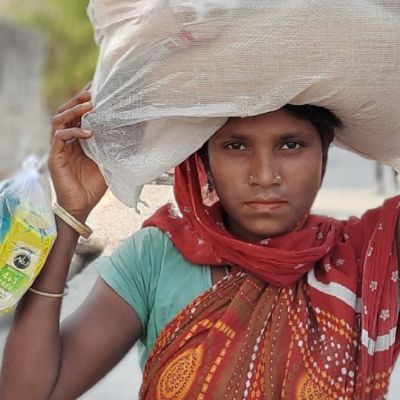Written by: Clara Chiu (Head of Partnership Development)
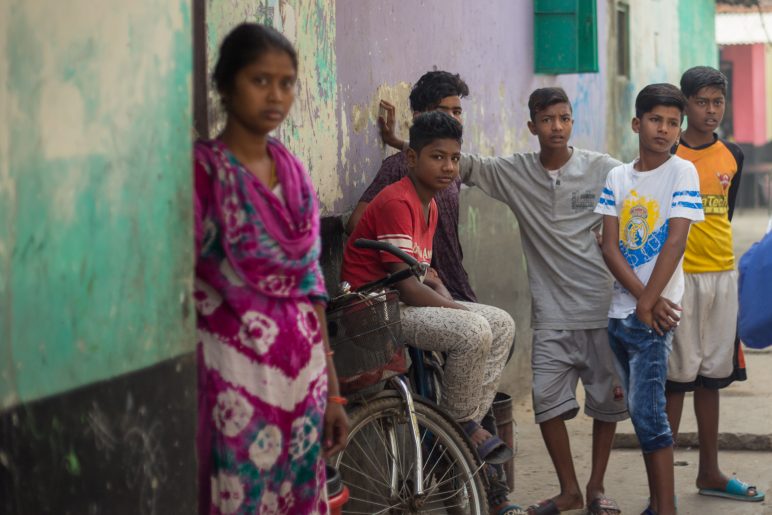
From July 20th to 23rd this year, several CEDAR staff participated in the “Asia Region Anti-Trafficking Conference” (hereinafter referred to as the conference). The conference was held for the first time three years ago, and this year is the third. It was changed to conduct online due to the pandemic. The purpose of the conference is to gather people from all parts of Asia who are concerned about human trafficking, and learn about it with other forms of modern slavery through various workshops, and know more about the latest anti-trafficking measures.
During the meeting, representatives from different organisations mentioned that the situation of human trafficking has become worse under the raging pandemic. Among them, Matt Friedman, the CEO of an international non-profit organisation The Mekong Club, and former Regional Project Manager at the United Nations Inter-Agency Project on Human Trafficking, shared the topic “The Impact of COVID-19 on Supply Chains”. He said that during the pandemic, the demand for many commodities has fallen. Due to the tight interlocking of supply chains under globalisation, it has caused the world economy to contract. Especially in poor countries, where the rights of workers have always been neglected and factory activities are declining, the wages of workers are being delayed. Some of them are even forced to work without getting paid.
After Millions of Workers Got Unemployed
Take Bangladesh as an example, as the world’s second-largest apparel exporter, the country is an important base for fashion production. The local clothing industry employs millions of workers (mostly women) to produce clothes for Western fashion brands. In May this year, it was reported that the pandemic caused a sharp drop in clothing sales. Brands and other retailers cancelled or suspended orders worth more than US$3 billion from garment factories in Bangladesh, and 2 million jobs might be cut. In developing countries, women are often vulnerable. Once they lose the chance to earn a living, they will often become the prey of human traffickers. Deception and abduction are common methods used by human traffickers.
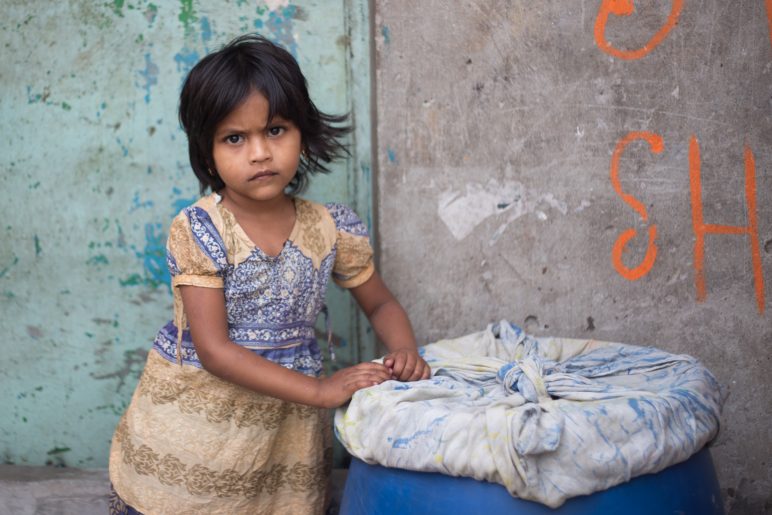
Participants at the conference said that many human traffickers pretended to be “prosperous in their lives”. They usually went to poor villages, deceiving the villagers for leaving the village to earn money, so that they could be as elegant as the traffickers themselves. As a result, the poor fell into the trap of the traffickers and were forced into slave labours or selling their bodies.
In India, a country with serious human trafficking in Asia, we have been supporting the local partner Evangelical Fellowship of India-Children at Risk (EFIC@R) to teach the youth with anti-trafficking knowledge, and establish a team to combat human trafficking in Bihar, a state where it is known for its poverty.
EFIC@R told us that although the child marriage problem in India has been slowing down in recent years, under the negative economic impacts of the pandemic, this vice has revived. In order to reduce expenses, poor families sell their daughters to others as “brides.” For example, a 12-year-old girl named Hiya (pseudonym) was sold by her family to a 50-year-old man for 20,000 Indian rupees (equivalent to HK$2,000). The partner could hardly do anything to stop. Another girl, Akshara (pseudonym), was only 8 years old and was forced to marry a 40-year-old man. Fortunately, the partner and residents in the community were alert and took timely action to rescue the girl. In the end, the girl was saved.
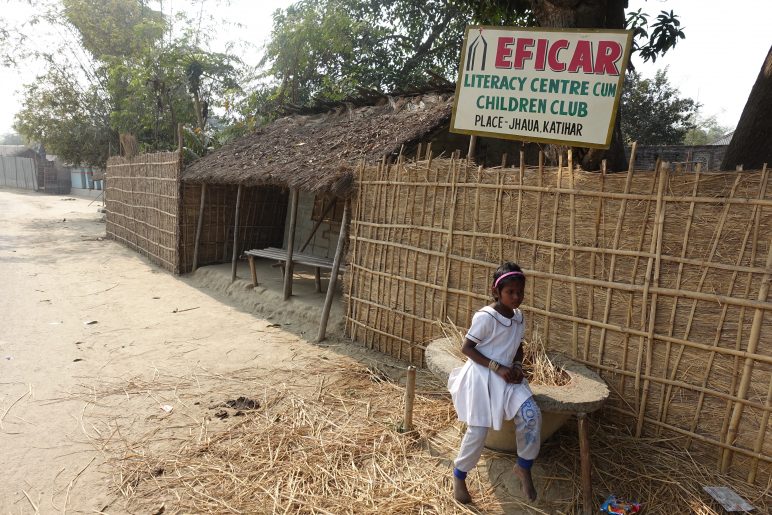
From Offline to Online
The United Nations Office on Drugs and Crime (UNODC) issued preliminary findings on the impact of the pandemic on human trafficking in April this year. According to UNODC, schools in poor countries are not only educational units, but also “the main source of shelter and nourishment” for poor children. In some countries, schools are closed due to the pandemic, and many poor children are “forced on to the streets in search of food and income”. This not only increases their risk of contracting the virus, but also makes them more vulnerable.
In addition, under the pandemic, many children have switched to studying and socialising online, and online sexual predators take this opportunity to target children. Representatives of organisations in the Philippines, Thailand and Cambodia all stated in the conference that the number of children being deceived or forced to take obscene photos and videos online has increased during the pandemic. EFIC@R also shared their frontline observation with us – the poor children in villages had to walk nearly 50 kilometers away from home to attend classes at the computer center because they did not have Internet access at home. The long distance has increased their risk of being trafficked.
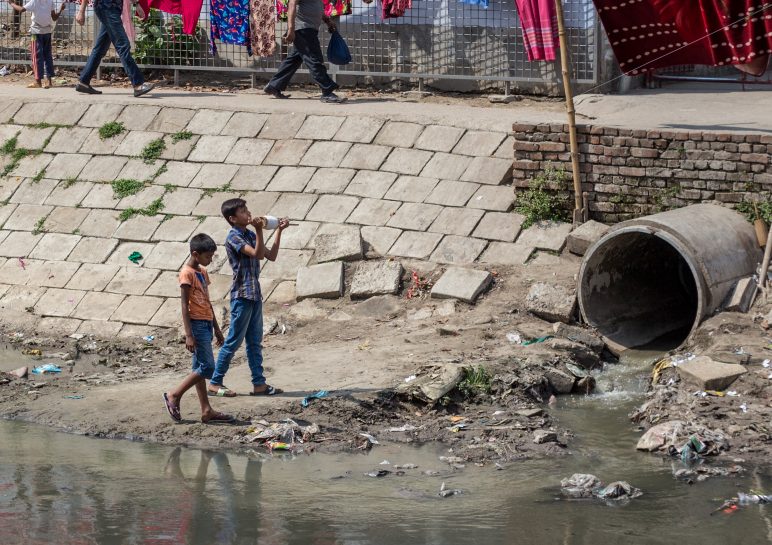
Today, human trafficking has become the world’s second largest illegal trade after drugs, with more than 40 million people being trafficked worldwide. During the pandemic, the mandatory anti-pandemic measures implemented by various countries and the increase of police patrols at borders and streets have not reduced the occurrence of human trafficking. On the contrary, criminal activities have become more concealed. Victims have also become more difficult to seek help due to the suspension of public services, thus creates opportunities for criminals.
In order to effectively combat human trafficking, a multifaceted approach is necessary – legislation, justice, community education and prevention, so as to respond to the “new normal” situation caused by the pandemic.
Join us in Combating Human Trafficking
Join our “Remove Price Tag, Free Body & Soul” Regular Donation Campaign through monthly donations and prayers to support our anti-human trafficking effort.
Content of this issue
Written by: Clara Chiu (Head of Partnership Development) From July 20th to 23rd this year, several CEDAR staff participated in the “Asia Region Anti-Trafficking Conference” (hereinafter referred to as the conference). The conference was held for the first time three years ago, and this year is the third. It was changed to conduct online due to the pandemic. The purpose of the conference is to gather people from all parts of Asia who are concerned about human trafficking, and learn about it with other forms of modern slavery through various workshops, and know more about the latest anti-trafficking measures. During the meeting, representatives from different organisations mentioned that the situation of human trafficking has become worse under the…
Written by Tony Chan (Senior Partnership Development Officer) “During that long period, the king of Egypt died. The Israelites groaned in their slavery and cried out, and their cry for help because of their slavery went up to God.” (Exodus 2:23) The old Pharaoh promised to the prime minister Joseph that Joseph would take his father’s family to live in Egypt and live in the “best part of the land” (Genesis 47:6), the region of Goshen. Jacob, the ancestor of the Israelites, was able to reunite with his son Joseph and escape the famine with his family, so he seized the opportunity and moved to Egypt with his family of 70 members. Over the years, Jacob’s family and…
Written by Edward Lai (Senior Communication Officer) As the pandemic is raging around the world, criminals do not only “hunt” civilians in a hidden way in poor villages, they also target their prey via the internet. By using their poor and fragile situation, they can easily force or lure the victims to work in sex industry, or engage in forced labour or any work that is obviously not commensurate with pay. Facing the “new normal” under the pandemic, Aashima Samuel, EFIC@R’s National Director, who has been engaged in anti-child trafficking for many years, shared her team’s coping strategies. Q: How does your team equip churches and local communities to fight child trafficking? A: In terms of preventive education,…
Banner image: Ayesha [centre], coordinator of CEDAR’s Nepalese partner, Asha Nepal (Updated on 9 October 2020) Our Nepalese partner recently told us that they rescued two girls from a red light area of India. The situation of the girls was very vulnerable so our partner carried out rescue even under the threat of COVID-19 and closing of borders. These two girls, who were physically and mentally weak, had undergone different circumstances. One of the girls named Nagina (pseudonym, 11 years old) had been sold by her own mother to a relative as a servant, due to poverty. The other girl named Lola (pseudonym, 16 years old) had been harassed sexually by her own father, after the death of…



